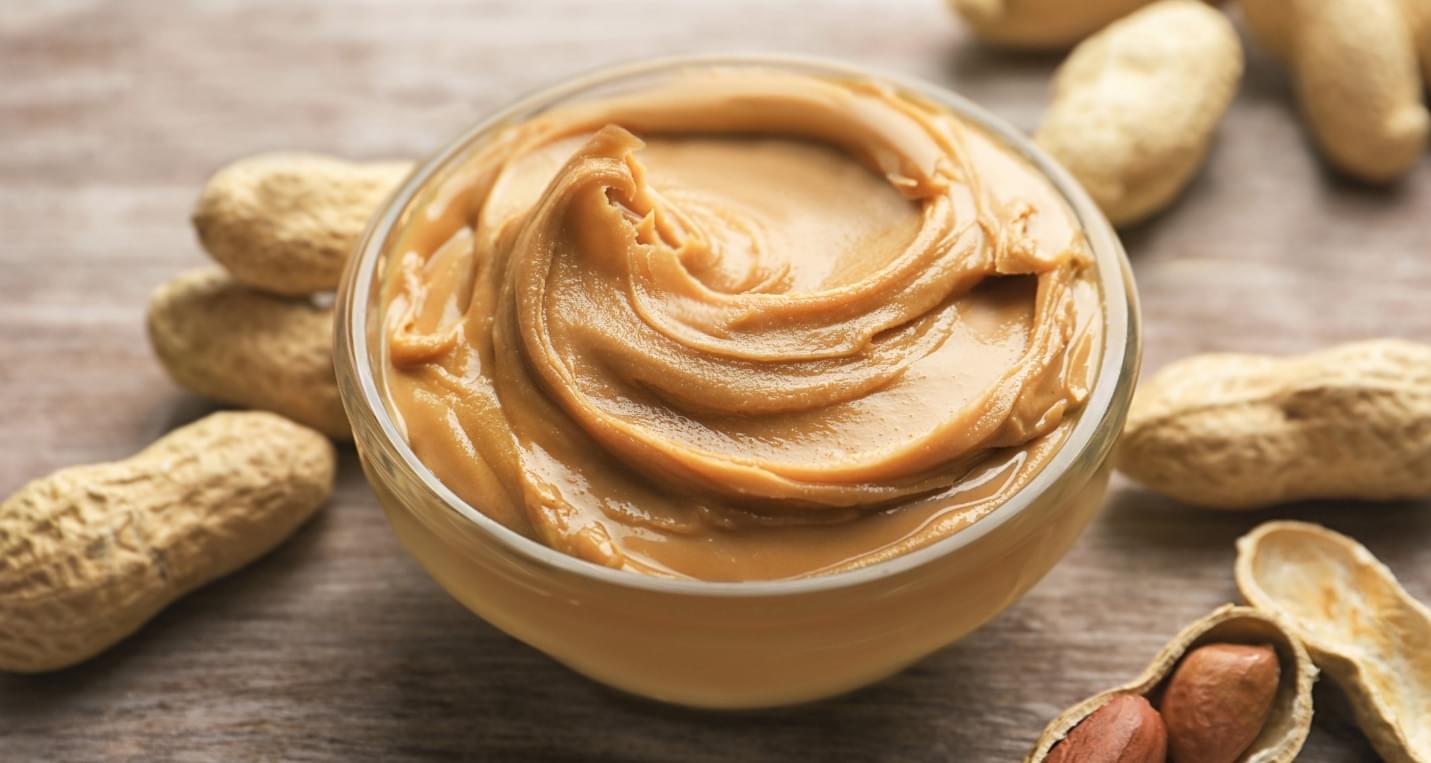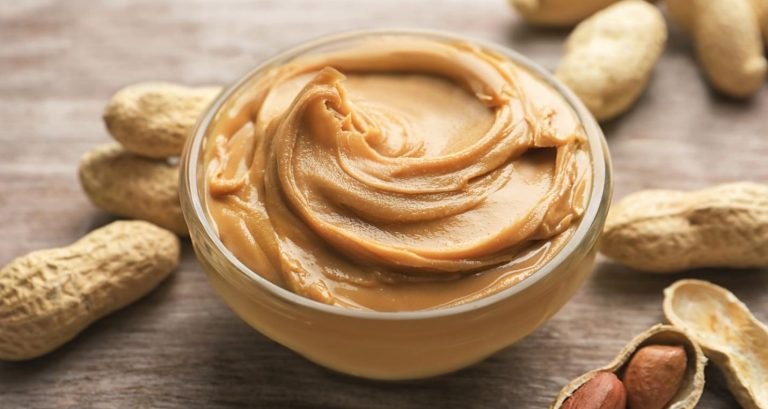You can refine both sweet and savory dishes with peanut butter. Here you can find out how healthy the creamy paste is and what you should pay attention to when buying and using it.
Peanut butter is often confused with peanut butter. In fact, the nut butter does not contain any additives and consists of pure peanuts. Only the salty versions contain some salt. Peanut butter, on the other hand, has a much more spreadable consistency. This is because it contains hard fats, mostly palm fat, as well as sugar and possibly other additives.
With peanut butter you therefore fall back on the healthier version. We will explain to you which nutrients the nut butter provides you with and how you can use it.
Peanut butter: macronutrients

Peanut butter is about half fat. For example, 100 grams of peanut butter contains 49 grams of fat. At first glance, this doesn’t seem healthy. However, the majority of these are unsaturated fatty acids. Our body needs this, for example, to produce hormones, to maintain a healthy immune system or to utilize certain vitamins. By the way, saturated fats are not bad per se. It only becomes critical if we consume too much of it.
With only about eight percent carbohydrate content, peanut butter is also one of the low-carbohydrate foods. You can also use the nut butter as a vegetable protein source: it provides 26 grams of protein per 100 grams.
As a high-fat food, peanut butter also contains a relatively large number of calories: that’s around 590 kilocalories per 100 grams. However, if consumed in moderation, you can use it as part of a balanced and healthy diet.
Peanut butter: vitamins, minerals & Co
Peanut butter not only provides healthy fatty acids, but is also rich in various micronutrients. Specifically, it provides you with:
Vitamin E: This vitamin acts as a component of the cell membrane and is therefore essential for the structure of our body cells. It also has anti-inflammatory and antioxidant effects. That means it fights free radicals and is important for a healthy immune system.
some B vitamins: peanuts are particularly rich in vitamins B1, B3, B5 and B7. These play a central role in metabolic processes in particular.
Potassium: The mineral is important, among other things, for a balanced acid-base balance and growth processes. It also enables healthy heart function and regulates blood pressure.
Magnesium: This nutrient is particularly important for our bone and skeletal structure.
Iron: As a trace element, iron enables the transport of oxygen and is therefore essential for cell formation.
Zinc: As a component of enzymes and protein, zinc is particularly important for wound healing and cell growth.
Tips for buying and using

When buying peanut butter, you usually have the choice between “fine” and “crunchy”. In the crunchy variant, the mush is not completely pureed, but still contains individual pieces of nuts. In both cases, opt for organic nut butter if possible. In this way you avoid chemical-synthetic pesticides that are harmful to your health and the environment.
Alternatively, you can also make peanut butter yourself. To do this, simply puree organic peanuts using a food processor or a high-performance blender until a creamy paste is formed.
You can use peanut butter for numerous dishes that you want to give a creamy consistency and the typical nutty taste. For example, it is suitable as an ingredient for:
homemade porridge
smoothie
pie fillings
muffins and cookies
savory dips, sauces and dressing
soups
spreads

